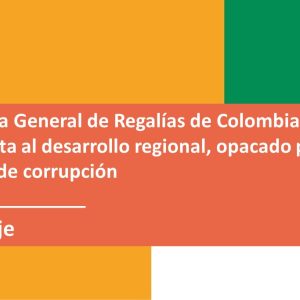Developing countries are the most affected by the impacts generated by climate change and most of them do not have the resources to face this difficult problem.
According to the Organization for Economic Cooperation and Development (OECD), funding to support the least favored countries in the fight against climate change reached some $79.9 billion in 2018, an amount that falls far short of the pledges made by rich countries.
Developed nations pledged in 2009 to raise by 2020 to $100 billion annually their assistance to Southern countries to adapt to the impacts of warming and reduce their greenhouse gas emissions.
This promise is the recurrent subject of indignation from poor countries, the first victims of the impact of climate change, who denounce the lack of solidarity on the part of rich countries, which are primarily responsible for this phenomenon that threatens the future of the planet.
According to the OECD report, the amount allocated by rich countries to help those with fewer resources in 2018 represented an increase of 11 percent over 2017, but the rate of increase slowed from the previous yearwhen it had been 22 percent.
According to the multilateral organization, about 70 percent of the funds were earmarked for emission reduction actions and only 21 percent for adaptation. The rest combined the two objectives.
In terms of geographic distribution, Asia was the main beneficiary with 43 percent, followed by Africa, where 25 percent of these resources went, and the Americas, with 17 percent.
But these figures are annually questioned by non-governmental organizations, which argue that some financing cannot be considered to be aimed at combating climate change.
NGOs disagree
Oxfam estimates average public funding in 2017 and 2018 at $59.5 billion, of which barely a third would have amounted to real climate aid.
In a report published in October, the NGO denounced that, for example, development projects, such as the construction of a building, are counted in this way because they contain solar panels.
He also regretted that there are too many loans in relation to direct aid and that little money is allocated to adaptation in the most vulnerable countries, such as island states.
“Climate finance is a vital security for communities facing record heatwaves, terrible storms and devastating floods,” Tracy Carty, one of the authors of the Oxfam report, said at the time. “While governments may be focused on covid-19, they must not lose sight of the growing threat of the climate crisis.”
But even if the $100 billion annual pledge were honored, it would be insufficient, according to the UN Environment Programme, which in 2016 estimated poor countries’ needs to adapt to warming at between $140 billion and $300 billion annually between now and 2030.
It is clear that the contributions to be made to address this problem must be increasingly greater, since the situation is worsening and its consequences are increasing, precisely because the countries do not have the resources to implement adaptation programs that would allow them to face the shocks generated by this global crisis.


